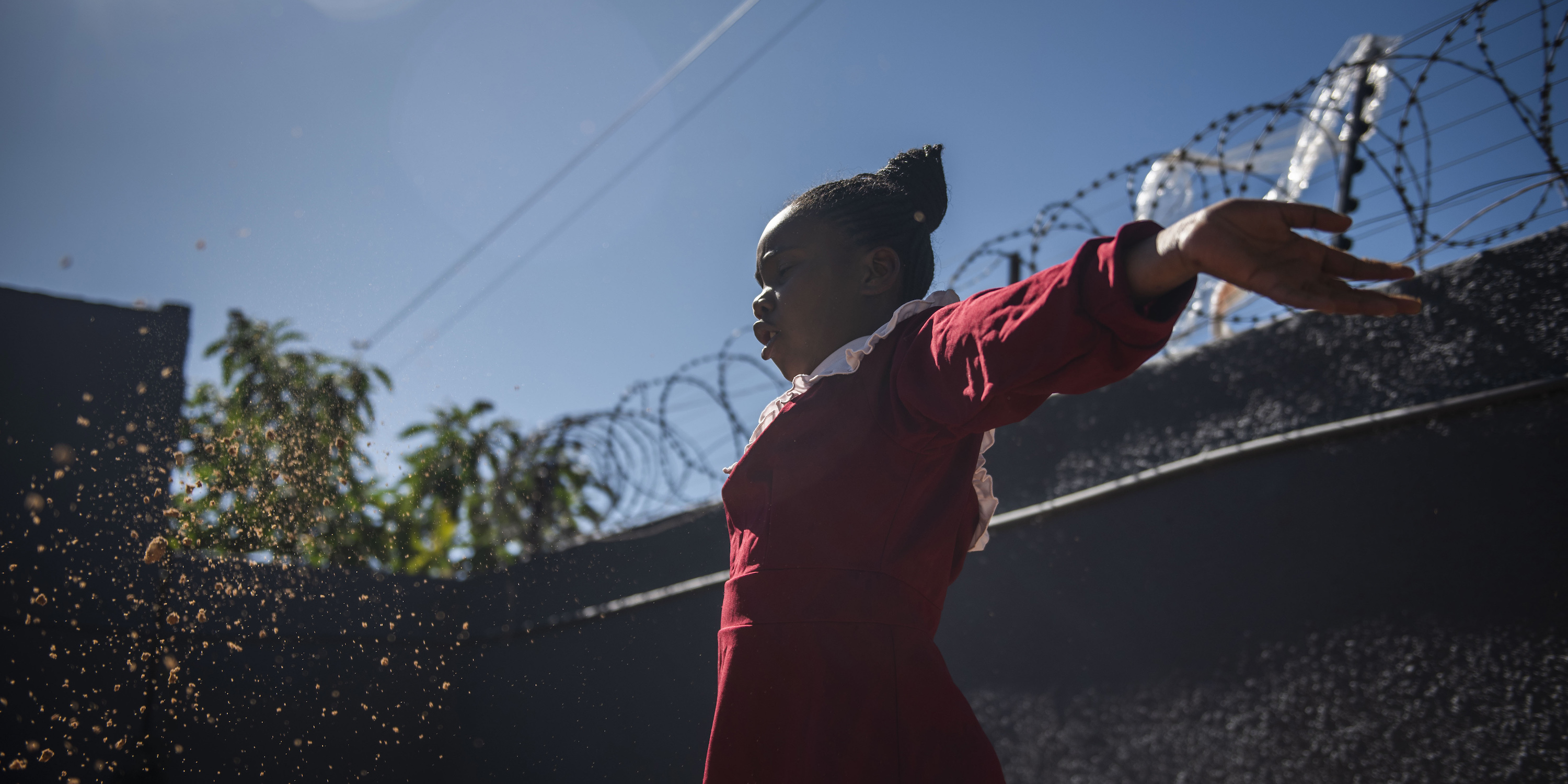The Stories We See, performed by young people from the Johannesburg Society for the Blind (JSB) and Johannesburg Child Welfare (JCW), navigates the challenges that visually impaired people face daily, using sound, song, movement, dance, personal narratives and storytelling.
Abled actors use various sounds to communicate with the visually impaired actors. By working together they embody the message of inclusivity. The play uses personal narratives from the actors to challenge the way the public sees people with disabilities.
Palesa Louw, one of the visually impaired actors who has been with the play since April, says that being in a play with other visually impaired actors feels normal and gives her confidence. “At least I am not the only one.” She says people can be too sensitive sometimes about interacting with people with disabilities, and the play makes them realise that “these people are just like us”.
/file/dailymaverick/wp-content/uploads/2023/06/Photo-essay-visually-impaired-02.jpg)
While the stories take us to different environments, such as public transport and church, the play also travels through physical spaces as the audience follows.
It was performed on 17 June at JSB to raise funds for its festival run. Their first performance at the National Arts Festival will be on 27 July at 4pm, in the AMAZWI Storytelling Amphitheatre. The group has a BackaBuddy campaign to raise funds to make their way to Grahamstown.
The Stories We See is directed by community theatre social activist Gcebile Dlamini, who creates work with the elderly, young people and people living with disabilities.
/file/dailymaverick/wp-content/uploads/2023/06/Photo-essay-visually-impaired-04.jpg)
Dlamini recognises the need for people with disabilities to have a creative outlet, “not just to raise visibility, but to express themselves and to claim their dignity, attention, safety and positions in communities”.
The JSB is an NPO that caters for blind and partially sighted persons in Johannesburg. It was founded in 1926 to help civilians who were blinded during World War 1. The centre provides accommodation, employment, rehabilitation, orientation, mobility and skills for daily living to the blind. It is at 159 North Road, Roseacre.
JCW is based in the Johannesburg CBD, at the Old Drill Hall building. The programme falls under the Child Abuse Treatment and Training Services. Its objective is to reduce poverty and inequality by generating employment among poor households into sustainable livelihoods and towards economic stability. DM
/file/dailymaverick/wp-content/uploads/2023/06/Photo-essay-visually-impaired-11.jpg)
/file/dailymaverick/wp-content/uploads/2023/06/Photo-essay-visually-impaired-MAIN.jpg)
/file/dailymaverick/wp-content/uploads/2023/06/Photo-essay-visually-impaired-10.jpg)
/file/dailymaverick/wp-content/uploads/2023/06/Photo-essay-visually-impaired-12.jpg)
/file/dailymaverick/wp-content/uploads/2023/06/Photo-essay-visually-impaired-09.jpg)
/file/dailymaverick/wp-content/uploads/2023/06/Photo-essay-visually-impaired-08.jpg)
/file/dailymaverick/wp-content/uploads/2023/06/Photo-essay-visually-impaired-07.jpg)
/file/dailymaverick/wp-content/uploads/2023/06/Photo-essay-visually-impaired-06.jpg)
/file/dailymaverick/wp-content/uploads/2023/06/Photo-essay-visually-impaired-05.jpg)




 Thanda Masuku at a dress rehearsal for the play about the challenges visually impaired people face daily. (Photo: Alet Pretorius)
Thanda Masuku at a dress rehearsal for the play about the challenges visually impaired people face daily. (Photo: Alet Pretorius)